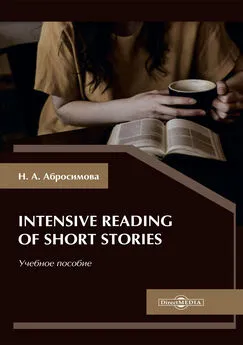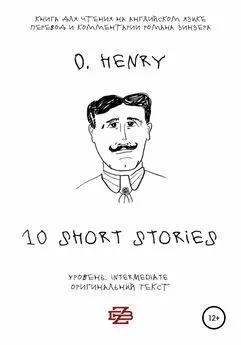Somerset Maugham - Sixty-Five Short Stories
- Название:Sixty-Five Short Stories
- Автор:
- Жанр:
- Издательство:неизвестно
- Год:неизвестен
- ISBN:нет данных
- Рейтинг:
- Избранное:Добавить в избранное
-
Отзывы:
-
Ваша оценка:
Somerset Maugham - Sixty-Five Short Stories краткое содержание
Sixty-Five Short Stories - читать онлайн бесплатно полную версию (весь текст целиком)
Интервал:
Закладка:
'After all,' he reflected, 'the politicians have made such a mess of the world during the last five-and-twenty years, I don't suppose it makes much odds if they're mad or sane.'
He rang the bell.
'If Lord Mountdrago comes now will you tell him that I have another appointment at six-fifteen and so I'm afraid I can't see him.'
'Very good, sir.'
'Has the evening paper come yet?'
'I'll go and see.'
In a moment the servant brought it in. A huge headline ran across the front page: Tragic Death of Foreign Minister.
'My God!' cried Dr Audlin.
For once he was wrenched out of his wonted calm. He was shocked, horribly shocked, and yet he was not altogether surprised. The possibility that Lord Mountdrago might commit suicide had occurred to him several times, for that it was suicide he could not doubt. The paper said that Lord Mountdrago had been waiting in a Tube station, standing on the edge of the platform, and as the train came in was seen to fall on the rail. It was supposed that he had had a sudden attack of faintness. The paper went on to say that Lord Mountdrago had been suffering for some weeks from the effects of overwork, but had felt it impossible to absent himself while the foreign situation demanded his unremitting attention. Lord Mountdrago was another victim of the strain that modern politics placed upon those who played the more important parts in it. There was a neat little piece about the talents and industry, the patriotism and vision, of the deceased statesman, followed by various surmises upon the Prime Minister's choice of his successor. Dr Audlin read all this. He had not liked Lord Mountdrago. The chief emotion that his death caused in him was dissatisfaction with himself because he had been able to do nothing for him.
Perhaps he had done wrong in not getting into touch with Lord Mountdrago's doctor. He was discouraged, as always when failure frustrated his conscientious efforts, and repulsion seized him for the theory and practice of this empiric doctrine by which he earned his living. He was dealing with dark and mysterious forces that it was perhaps beyond the powers of the human mind to understand. He was like a man blindfold trying to feel his way to he knew not whither. Listlessly he turned the pages of the paper. Suddenly he gave a great start, and an exclamation once more was forced from his lips. His eyes had fallen on a small paragraph near the bottom of a column. Sudden Death of an M.P., he read. Mr Owen Griffiths, member for so-and-so, had been taken ill in Fleet Street that afternoon and when he was brought to Charing Cross Hospital life was found to be extinct. It was supposed that death was due to natural causes, but an inquest would be held. Dr Audlin could hardly believe his eyes. Was it possible that the night before Lord Mountdrago had at last in his dream found himself possessed of the weapon, knife or gun, that he had wanted, and had killed his tormentor, and had that ghostly murder, in the same way as the blow with the bottle had given him a racking headache on the following day, taken effect a certain number of hours later on the waking man? Or was it, more mysterious and more frightful, that when Lord Mountdrago sought relief in death, the enemy he had so cruelly wronged, unappeased, escaping from his own mortality, had pursued him to some other sphere there to torment him still? It was strange. The sensible thing was to look upon it merely as an odd coincidence. Dr Audlin rang the bell.
'Tell Mrs Milton that I'm sorry I can't see her this evening. I'm not well.'
It was true; he shivered as though of an ague. With some kind of spiritual sense he seemed to envisage a bleak, a horrible void. The dark night of the soul engulfed him, and he felt a strange, primeval terror of he knew not what.
Sanatorium
For the first six weeks that Ashenden was at the sanatorium he stayed in bed. He saw nobody but the doctor who visited him morning and evening, the nurses who looked after him, and the maid who brought him his meals. He had contracted tuberculosis of the lungs, and since at the time there were reasons that made it difficult for him to go to Switzerland the specialist he saw in London had sent him up to a sanatorium in the north of Scotland. At last the day came that he had been patiently looking forward to when the doctor told him he could get up; and in the afternoon his nurse, having helped him to dress, took him down to the veranda, placed cushions behind him, wrapped him up in rugs, and left him to enjoy the sun that was streaming down from a cloudless sky. It was mid-winter. The sanatorium stood on the top of a hill and from it you had a spacious view of the snow-clad country. There were people lying all along the veranda in deck-chairs, some chatting with their neighbours and some reading. Every now and then one would have a fit of coughing and you noticed that at the end of it he looked anxiously at his handkerchief. Before the nurse left Ashenden she turned with a kind of professional briskness to the man who was lying in the next chair.
'I want to introduce Mr Ashenden to you,' she said. And then to Ashenden: 'This is Mr McLeod. He and Mr Campbell have been here longer than anyone else.'
On the other side of Ashenden was lying a pretty girl, with red hair and bright blue eyes; she had on no make-up, but her lips were very red and the colour on her cheeks was high. It emphasized the astonishing whiteness of her skin. It was lovely even when you realized that its delicate texture was due to illness. She wore a fur coat and was wrapped up in rugs, so that you could see nothing of her body, but her face was extremely thin, so thin that it made her nose, which wasn't really large, look a trifle prominent. She gave Ashenden a friendly look, but did not speak, and Ashenden, feeling rather shy among all those strange people, waited to be spoken to.
'First time they've let you get up, is it?' said McLeod.
'Yes.'
'Where's your room?' Ashenden told him.
'Small. I know every room in the place. I've been here for seventeen years. I've got the best room here and so I damned well ought to have. Campbell's been trying to get me out of it, he wants it himself, but I'm not going to budge; I've got a right to it, I came here six months before he did.'
McLeod lying there, gave you the impression that he was immensely tall; his skin was stretched tight over his bones, his cheeks and temples hollow, so that you could see the formation of his skull under it; and in that emaciated face, with its great bony nose, the eyes were preternaturally large.
'Seventeen years is a long time,' said Ashenden, because he could think of nothing else to say.
'Time passes very quickly. I like it here. At first, after a year or two, I went away in the summer, but I don't any more. It's my home now. I've got a brother and two sisters; but they're married and now they've got families; they don't want me. When you've been here a few years and you go back to ordinary life, you feel a bit out of it, you know. Your pals have gone their own ways and you've got nothing in common with them any more. It all seems an awful rush. Much ado about nothing, that's what it is. It's noisy and stuffy. No, one's better off here. I shan't stir again till they carry me out feet first in my coffin.'
The specialist had told Ashenden that if he took care of himself for a reasonable time he would get well, and he looked at McLeod with curiosity.
'What do you do with yourself all day long?' he asked.
'Do? Having T.B. is a whole-time job, my boy. There's my temperature to take and then I weigh myself. I don't hurry over my dressing. I have breakfast, I read the papers and go for a walk. Then I have my rest. I lunch and play bridge. I have another rest and then I dine. I play a bit more bridge and I go to bed. They've got quite a decent library here, we get all the new books, but I don't really have much time for reading. I talk to people. You meet all sorts here, you know. They come and they go. Sometimes they go because they think they're cured, but a lot of them come back, and sometimes they go because they die. I've seen a lot of people out and before I go I expect to see a lot more.'
The girl sitting on Ashenden's other side suddenly spoke.
'I should tell you that few persons can get a heartier laugh out of a hearse than Mr McLeod,' she said.
McLeod chuckled.
'I don't know about that, but it wouldn't be human nature if I didn't say to myself: Well, I'm just as glad it's him and not me they're taking for a ride.'
It occurred to him that Ashenden didn't know the pretty girl, so he introduced him.
'By the way, I don't think you've met Mr Ashenden-Miss Bishop. She's English, but not a bad girl.'
'How long have you been here?' asked Ashenden.
'Only two years. This is my last winter. Dr Lennox says I shall be all right in a few months and there's no reason why I shouldn't go home.'
'Silly, I call it,' said McLeod. 'Stay where you're well off, that's what I say.'
At that moment a man, leaning on a stick, came walking slowly along the veranda.
'Oh, look, there's Major Templeton,' said Miss Bishop, a smile lighting up her blue eyes; and then, as he came up: 'I'm glad to see you up again.' 'Oh, it was nothing. Only a bit of a cold. I'm quite all right now.'
The words were hardly out of his mouth when he began to cough. He leaned heavily on his stick. But when the attack was over he smiled gaily.
'Can't get rid of this damned cough,' he said. 'Smoking too much. Dr Lennox says I ought to give it up, but it's no good-I can't.'
He was a tall fellow, good-looking in a slightly theatrical way, with a dusky, sallow face, fine very dark eyes, and a neat black moustache. He was wearing a fur coat with an astrakhan collar. His appearance was smart and perhaps a trifle showy. Miss Bishop made Ashenden known to him. Major Templeton said a few civil words in an easy, cordial way, and then asked the girl to go for a stroll with him; he had been ordered to walk to a certain place in the wood behind the sanatorium and back again. McLeod watched them as they sauntered off.
'I wonder if there's anything between those two,' he said. 'They do say Templeton was a devil with the girls before he got ill.'
'He doesn't look up to much in that line just now,' said Ashenden.
'You never can tell. I've seen a lot of rum things here in my day. I could tell you no end of stories if I wanted to.'
'You evidently do, so why don't you?'
McLeod grinned.
'Well, I'll tell you one. Three or four years ago there was a woman here who was pretty hot stuff. Her husband used to come and see her every other week-end, he was crazy about her, used to fly up from London; but Dr Lennox was pretty sure she was carrying on with somebody here, but he couldn't find out who. So one night when we'd all gone to bed he had a thin coat of paint put down just outside her room and next day he had everyone's slippers examined. Neat, wasn't it? The fellow whose slippers had paint on them got the push. Dr Lennox has to be particular, you know. He doesn't want the place to get a bad name.'
'How long has Templeton been here?'
'Three or four months. He's been in bed most of the time. He's for it all right. Ivy Bishop'll be a damned fool if she gets stuck on him. She's got a good chance of getting well. I've seen so many of them, you know, I can tell. When I look at a fellow I make up my mind at once whether he'll get well or whether he won't, and if he won't I can make a pretty shrewd guess how long he'll last. I'm very seldom mistaken. I give Templeton about two years myself.'
McLeod gave Ashenden a speculative look, and Ashenden, knowing what he was thinking, though he tried to be amused, could not help feeling somewhat concerned. There was a twinkle in McLeod's eyes. He plainly knew what was passing through Ashenden's mind.
Читать дальшеИнтервал:
Закладка:










